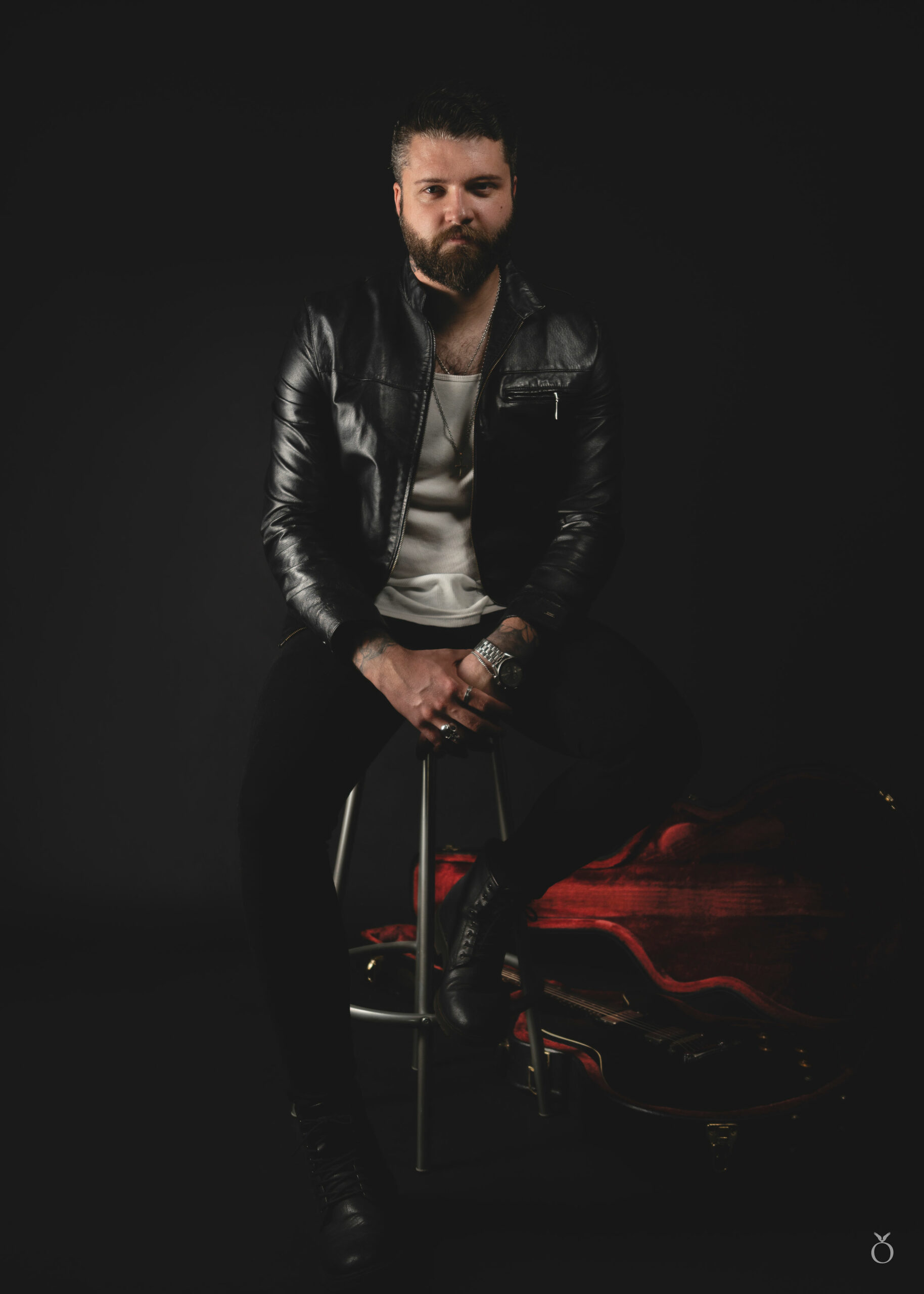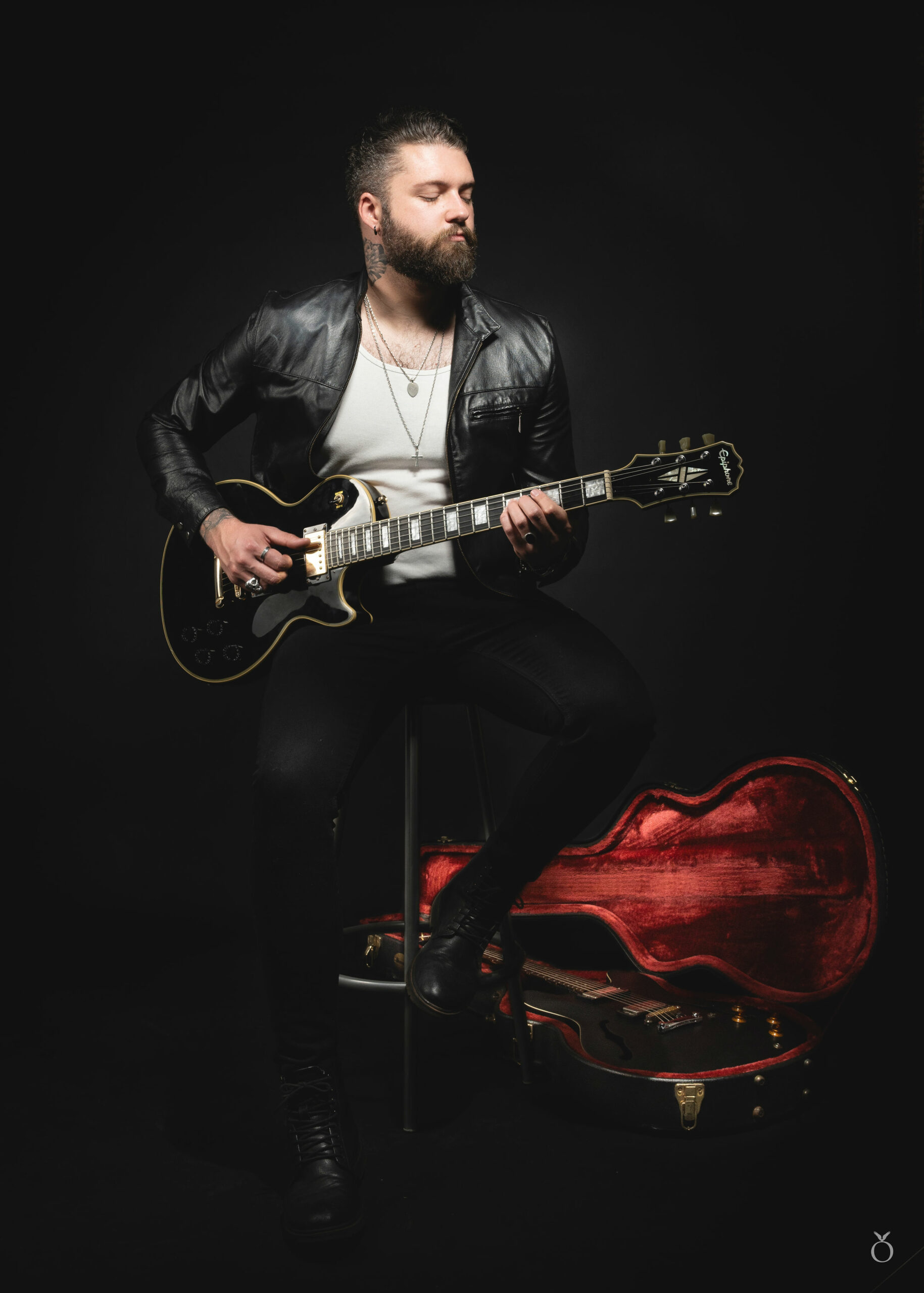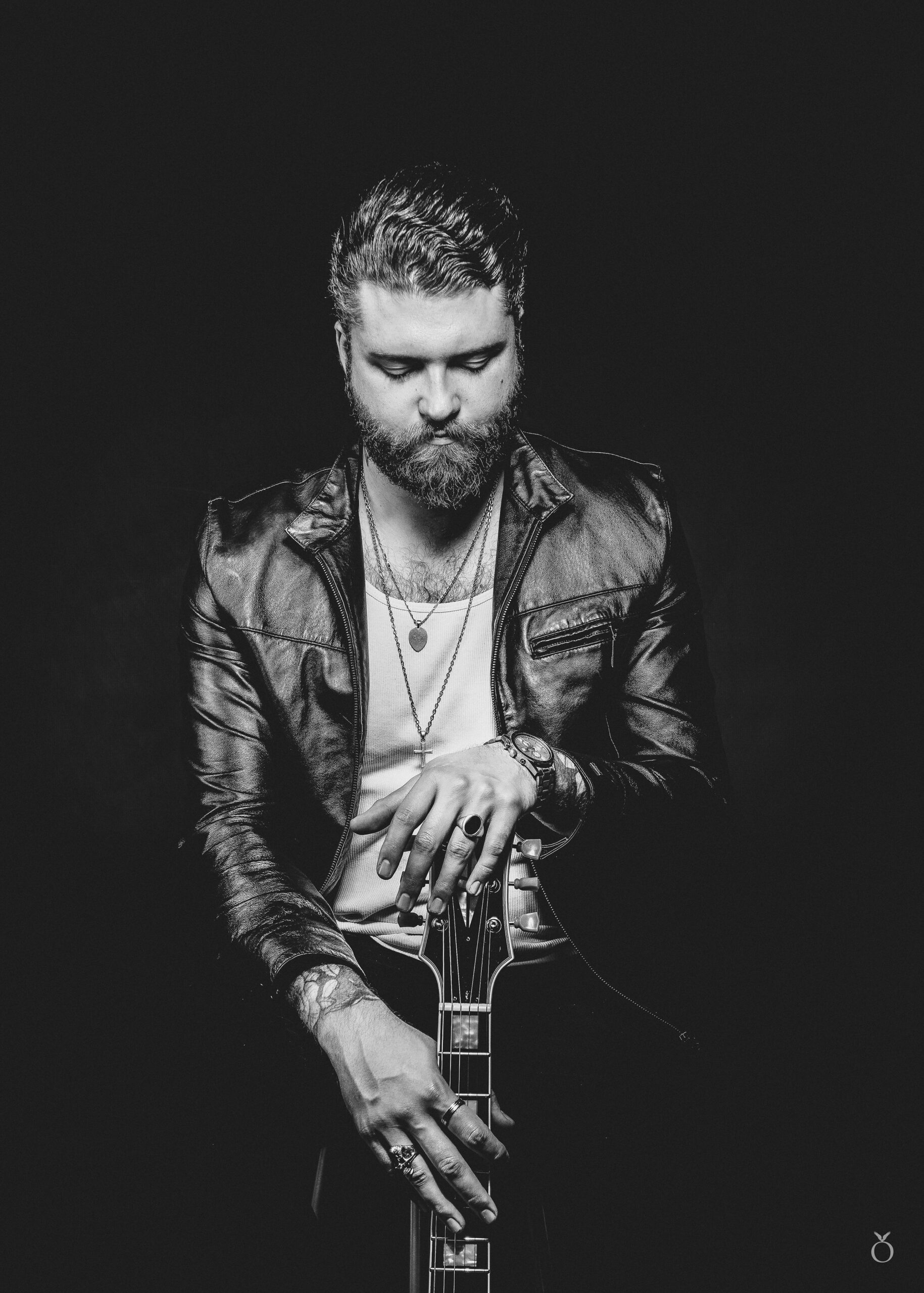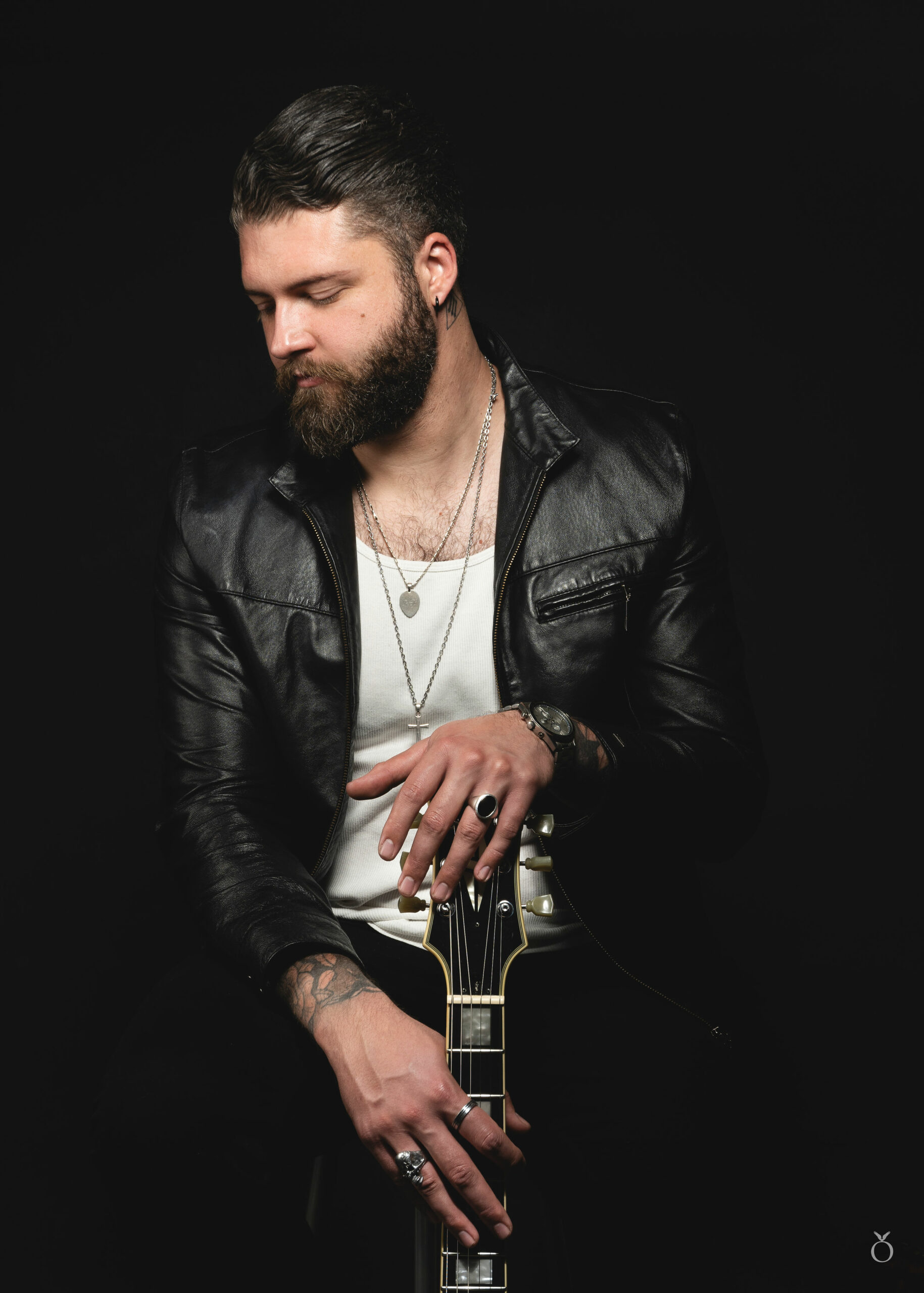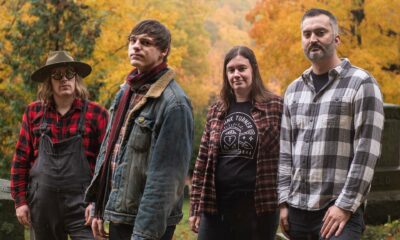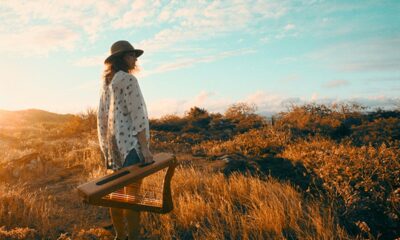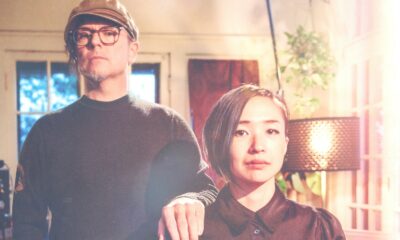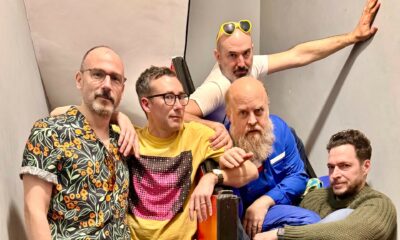Alternative/Rock
Ross Harding Discusses His Blues Rock Single “A Thousand Snakes”
South African blues rocker Ross Harding discusses his latest single “A Thousand Snakes,” his upcoming shows, and musical advice.
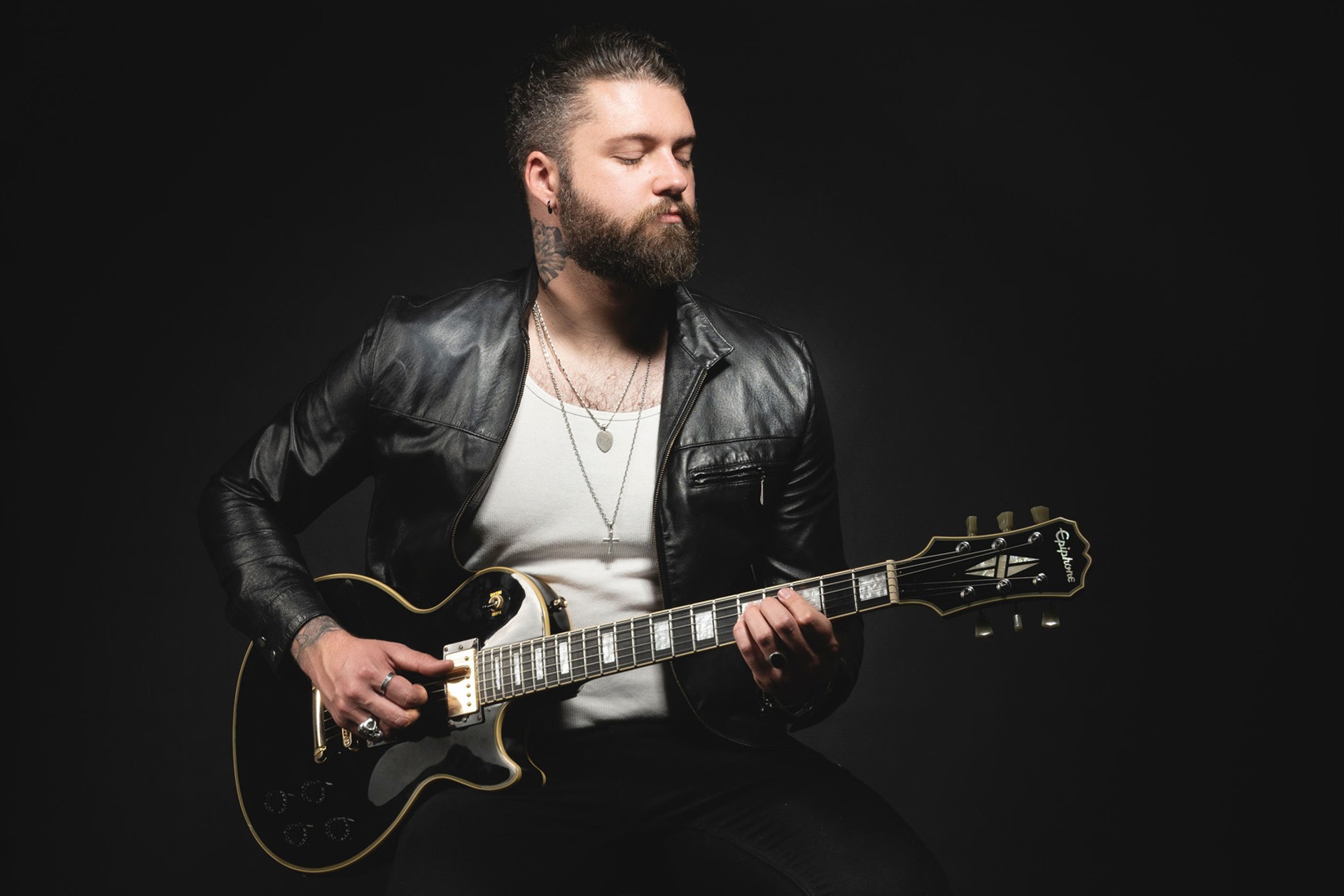
South African/UK Rock and Blues singer-songwriter Ross Harding is poised to captivate audiences worldwide with his new single and music video, “A Thousand Snakes.” Drawing inspiration from the raw essence of old Delta Blues, this promises a haunting journey through themes of struggle and resilience. With a detuned guitar rooted in bluesy tones, Ross infuses his own style, creating a dark and sinister atmosphere that resonates with the depths of the soul. Through personal reflection and philosophical insight, “A Thousand Snakes” delves into the complexities of human existence, offering listeners an immersive experience that transcends musical boundaries.
Discussing the song, Harding comments:
“The original idea for ‘A Thousand Snakes’ was inspired by the old Delta blues. A detuned guitar part rooted in those bluesy tones, embellished with my own style. There is something dark and sinister lurking there. The core of the song is about struggle, somewhat. Maybe about our struggles in life as people, maybe something very personal, I can’t say for sure. I seem to gravitate towards these themes often because I think our existence as people ultimately is about struggle in different forms that shape us. Sometimes, unfortunately, it creates broken people, lost people, and sometimes it creates enlightened, more resilient beings, the latter being my hope for all.
“My music usually takes on this kind of darker form because that’s what resonates with me. That’s what moves my soul in music generally. I don’t always think that dark element is negative. I think there is something much deeper. Philosophically, when we consider the most poignant times in our lives, they are seldom ‘happy,’ and that doesn’t mean those times weren’t good. There are emotions in this world far greater.”
Join us as we delve into the dynamic world of Ross Harding, a multifaceted musician whose journey has taken him from the music scene of South Africa to the bustling streets of the UK. With a knack for blending blues, rock, and soul into soul-stirring melodies, Ross has captivated audiences with his electrifying performances and genre-defying compositions. As we catch up with Ross, we explore his evolution as a solo artist, his collaborations with acclaimed bands, and the inspiration behind his latest single and music video, “A Thousand Snakes.” Let’s embark on a sonic adventure and uncover the depths of Ross Harding’s musical prowess.
Reflecting on your career journey so far, which spans from your early days with Black Harbour Blues to your solo ventures, can you walk us through some of the most pivotal moments or achievements that have shaped your trajectory as an artist? From your beginnings in South Africa’s vibrant music scene to your upcoming move to the UK, how do you feel these experiences have influenced your musical identity and approach to songwriting?
Ross Harding: “I feel that time and experience play a major part in shaping one’s musical identity. My experiences from various time periods, writing, recording, and performing with different bands, and all the experiences of working in the music industry have had an impact. I was working in the industry before Black Harbour Blues – having been in various rock bands. Although, I do think of Black Harbour as a kind of ‘music university’ where I really started learning about the industry.
“I also started performing solo much more just before then, and that’s become a huge part of my touring. The Black Harbour Blues era in my career really taught me a lot about what I want to achieve as a musician and artist, both creatively and from a business perspective. As time marches on, my artistic identity becomes clearer. I can work towards a clearer goal than when I was younger, both in a business sense and as an artist.”
How has your experience as a solo artist evolved from your earlier pursuits with bands like Black Harbour Blues and leading groups like Fear of Falling? Can you reflect on the transition from collaborating within a band to pursuing your own artistic vision, and how has this shift influenced the development of your sound and songwriting style? As you continue to explore new musical territories as a solo artist, what aspects from your collective journey continue to inspire and shape your solo work?
“The decision to ‘go solo’ as they say was based on different things, from creative pursuits to business and economics. Like many things born from that time, the COVID-19 pandemic lockdown was really useful to me. It gave me needed time to create the foundations for how I was going to continue as a musician thereafter. The bands I was in had crossed their respective finish lines, and I was contemplating the way forward. Carving that path as a solo artist made the most sense for several reasons.
“For example, the blues genre has a tradition of artists working under their own names, or pseudonyms, which I liked. In addition, I still love playing in a band. Performing live with fellow musicians is an incredible thing to me, but I also wanted to be able to do stripped-back shows by myself, especially in circumstances where having a band wouldn’t be possible. As a modern working musician in an industry that changes daily, it seems, the need for adjustment, adaptation, and progress is something I think I can navigate far more smoothly as a solo artist.”
Throughout your career, you’ve had the privilege of sharing the stage with esteemed artists and musicians. Can you share some standout moments or lessons learned from these collaborations? How have these experiences enriched your artistic vision and contributed to your growth as a performer?
Moreover, looking ahead to your relocation to the UK, how do you envision forging new musical connections and collaborations in this dynamic music landscape?
“I’ve had the privilege of working with and supporting artists like Dan Patlansky, The Black Cat Bones, Albert Frost, and a whole array of others. I try to learn from others and find inspiration from them. In a nutshell, I think just watching these kinds of artists informs my own musical ability. A lesson I’ve learned, and one that can be applied in many contexts, is the power of creating opportunities. It encompasses things like networking, building relationships, and so forth. Taking risks as well. That’s really been key in being able to work with the musicians I have.
“I’m way more introverted than people might realize and have had to force myself into social situations when I’d probably rather be home watching TV, in order to build on relationships and create something that wasn’t there before. That can be the difference between sitting down for coffee with a person you really admire, learning from them, versus being a know-it-all and never really progressing.”
Coming from a culturally rich and diverse background in South Africa, how do you draw upon your heritage and experiences to shape your music? In what ways does your South African identity inform your songwriting process and lyrical themes? As you embark on this new chapter in the UK, how do you plan to bridge the gap between your roots and the global music community?
“I can’t say that I’ve ever really considered my South African background in terms of creating music. Of course, on some level, it would have an impact in terms of how one grows up, the places one visits, and the culture and society in which one lives. Perhaps it’s more subtle or subconscious for me. I’ve always taken inspiration, musically and lyrically, from the outside. My favourite bands, and the ones who have had the most influence on me, are all from the UK, England in particular, and the U.S. All the literature, art, film, and other sources of lyrical inspiration have come from the UK, Europe, and the U.S. as well.
“So, it’s hard to say definitively whether my heritage has had a major impact, and in what ways. I do know that I always dreamed of being able to work from abroad. The U.S., Europe, but England always had something I desired to be a part of. Something about the culture, the richness of musical history. So many other factors really called to me from a young age when I first visited London on a trip with my father.”
As you prepare to make the transition to the UK, what are your hopes and aspirations for the next phase of your music career? How do you anticipate this move will influence your artistic journey and allow you to explore new creative avenues?
Furthermore, how do you plan to navigate the challenges and opportunities that come with immersing yourself in a new cultural and musical environment?
“Moving to the UK is an exciting transition and opportunity for my family and me. It allows me to broaden my creative horizons and expand on musical and cultural perspectives. The UK is so rich in culture and musical diversity. My intention is to fully immerse myself, which I know will enrich my own artistry. I have no doubt that the UK will influence me as an artist. Of course, there are challenges with navigating a new country, or continent and figuring out one’s way. That’s all part of the process.
“I think that what I’ve established so far in my career will help me bridge those gaps, also by calling on the relationships I’ve already built to assist. I feel like I have something to offer the music fans of the UK and Europe, and that by serving audiences with my music, many of the challenges will be overcome.”
Let’s delve into your latest single and music video, “A Thousand Snakes.” Can you share the inspiration behind the track and the creative process involved in bringing it to life? From the raw energy of the music to the visual storytelling in the video, what emotions or messages do you hope to convey to listeners?
Additionally, how do you see this song fitting into the broader narrative of your musical repertoire?
“The old blues has such an enchanting appeal to me. Simple music that is primal at its core, tribal, trance-like, and evokes feelings of magic, and hypnosis. It’s mesmerizing. That’s really the bluesy core and essence of ‘A Thousand Snakes,’ and that’s what it feels like to me. To be honest, at times the blues connection in my music might seem a little further removed than what purists would like. But I feel like most of my music has that blues essence at its foundation. I guess I’d like people to feel that when they’re listening to my music. Something moving that takes them away from everyday life and entices them to feel something deeper.
“Initially, I was going to have footage of snakes and eerie things, but I decided to take a different artistic approach in the end. The video shows the two sides of the coin that I touched on in the previous section, the hard rock band and musician, and the acoustic artist. The video was also filmed in a location in Boksburg, at the Boksburg Stadium, in the town where I grew up. There’s this strange tower that looms over that area, that I remember had rumours of the occult and Satanism linked to it. I always wanted to leave that town and move on to bigger things.
“An apt coincidence has occurred in two music videos now where an airplane has flown by during filming, which of course speaks to the idea of moving, and now, immigrating, which I loved. I do think the video is a tip of the hat to where I grew up, as it is still part of who I am, and kind of reflects the progress I have made since then. This song is another chapter in the book that is my discography. It forms part of painting that greater picture that I am sharing with the world.”
Your music is often characterized by its gritty, sludgy, riff-laden groove with delta blues influences. How do you approach blending these diverse elements into your signature style? What sets your sound apart from others in the genre?
Moreover, what thematic or lyrical motifs do you tend to gravitate towards, and how do they reflect your personal experiences and worldview?
“I think it all boils down to what I like. My influences play a role in how I craft my sound, much like the guitar tones are influenced by my taste. So are the drums, bass, and so on. I am informed by bands and artists all the way from Black Sabbath to Joe Bonamassa. A very nerdy (and perhaps too esoteric answer) is that I think my ‘signature sound’ is the blues scale, mixed with the harmonic minor scale. Musicians will understand what I mean. It’s basically a blues core with something more dark and sinister sounding, although it can also be extraordinarily emotive, melancholic, and brooding. That’s kind of where I operate from much of the time, but not exclusively.
“Lyrically, I tend to write about things that are of interest to me. These range from folklore to philosophy, horror literature, Shakespeare, the occult and many others. I’ve delved into religion and politics here and there, but more subtly. My personal experiences and views are conveyed in my songs. But again, I tend to be more subtle about it. I believe in the individual interpretation of art, a much more individual (and potent) way of listening to music.”
Your lyrics are known for their rich imagery and emotive storytelling. Can you provide insight into your songwriting process and how you craft these narratives? From drawing inspiration from personal experiences to exploring universal themes, how do you strike a balance between introspection and relatability in your music?
Furthermore, what do you hope listeners will take away from the imagery and messages embedded within your songs?
“As I touched on above, I really write about my interests, things that move me, and things that I find of importance or value. From a musical perspective, I’ve never wanted to write anything that directly persuades anyone’s opinion or point of view. That doesn’t mean that I don’t feel strongly about what I am saying. I just think that my art is a way for people to escape, perhaps feel some catharsis, and get away from everyday life.
“Many times, the song’s ‘meanings’ only reveal themselves later. When I can get into a deeply creative zone, I try to allow music and words to flow, and often that stream of consciousness can be abstract or obscure, sometimes never really revealing its meaning. All I can do then is decide whether I like what has been created and share it with the world. It’s up to the listener to decide whether they like the music or not, and what the imagery and messages mean for them.”
Looking ahead to your upcoming shows in the UK, including performances alongside artists like Dan Patlansky, how do you approach preparing for live performances and connecting with audiences on stage? What can fans expect from your live shows, and how do you aim to create memorable experiences for them?
Additionally, how do you plan to adapt your stage presence and performance style to resonate with international audiences?
“What I have learned is that no show is the same. Audiences are made of individual people, and that means an ever-changing entity at every show. For me, the best way to translate and share what I do is to do it with everything I’ve got. I take the live environment seriously. I do my best to ensure the music I am sharing is performed the best that I can, and then use my experience of hundreds of shows to guide me with the crowd. That’s served me well, and I will continue to build on that. I am serving the audience in the end, by performing music. Although I am on the stage, playing my music, I am still in service of the people.”
Throughout your career, you’ve undoubtedly experienced some memorable moments on stage. Could you share a standout anecdote or funny incident from one of your live performances that has stuck with you over the years?
“I once received a pretty nasty electrical shock from a microphone on stage, where obviously the stage set up wasn’t meeting proper safety standards. That has stuck with me to this day. I’m always a little bit skeptical about touching the mic or getting my mouth too close in case I get another electric kiss!”
Finally, what advice would you offer to emerging musicians who are navigating their own artistic journeys and striving to find their voice in the industry?
Based on your own experiences and lessons learned, what guiding principles or words of wisdom would you share with aspiring artists looking to carve out their own path in music?
“Honestly, I think any advice I could give would only be my opinion, so I hope this is useful to people. I believe in honing your ability as a musician and get good at your thing. Make the best music you can for you. Make art. There is a difference between being an artist and being a businessperson/entrepreneur who makes music. You will need to develop a series of skills: live performance, music creation, business acumen, entrepreneurship, resilience, and tenacity, and a whole range of other important skills, especially as an independent artist.
“I’m paraphrasing, but Rick Rubin also mentions not being afraid to have a day job. Sometimes that bit of financial security means your art can be much more risky, experimental, or whatever it needs to be, rather than worrying about paying the bills necessarily with music alone. Then, a massively important aspect for me is sobriety. I got sober about four years ago, and it changed my life. I think besides keeping my mind and body healthy, it gives me an edge because I am way sharper when it comes to making decisions in business. I am more equipped to deal with life, generally than when I was drinking and drugging all the time. The music industry can swallow you, so better go into it with all your wits about you.”
As our conversation with Ross Harding draws to a close, we’re left with a deeper appreciation for his artistry and the passion he brings to his music. From the raw energy of his live performances to the introspective lyricism of his songs, Ross continues to push boundaries and defy expectations. As he embarks on this new chapter of his musical journey, relocating to the UK and captivating audiences with his latest release, “A Thousand Snakes,” we eagerly anticipate the next chapter in his story. Follow Ross Harding on his journey and stream his music to experience the sonic tapestry he weaves with each new composition.
-

 Music1 week ago
Music1 week agoTake That (w/ Olly Murs) Kick Off Four-Night Leeds Stint with Hit-Laden Spectacular [Photos]
-

 Alternative/Rock4 days ago
Alternative/Rock4 days agoThe V13 Fix #011 w/ Microwave, Full Of Hell, Cold Years and more
-

 Alternative/Rock2 weeks ago
Alternative/Rock2 weeks agoThe V13 Fix #010 w/ High on Fire, NOFX, My Dying Bride and more
-

 Features1 week ago
Features1 week agoTour Diary: Gen & The Degenerates Party Their Way Across America
-

 Culture2 weeks ago
Culture2 weeks agoDan Carter & George Miller Chat Foodinati Live, Heavy Metal Charities and Pre-Gig Meals
-

 Indie4 days ago
Indie4 days agoDeadset Premiere Music Video for Addiction-Inspired “Heavy Eyes” Single
-

 Music2 weeks ago
Music2 weeks agoReclusive Producer Stumbleine Premieres Beat-Driven New Single “Cinderhaze”
-
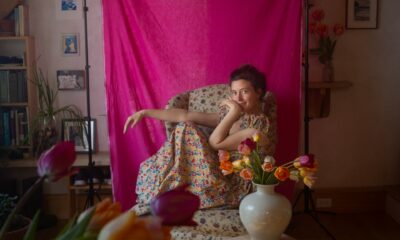
 Folk5 days ago
Folk5 days agoKatherine Perkins Strikes the Right Tone with Her “Hold On” Music Video Premiere

